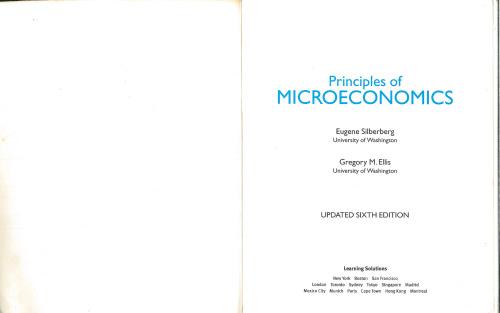Suppose a lake is publicly owned, i.e. a common property, with free fishing for all. The number
Question:
Suppose a lake is publicly owned, i.e. a "common property," with "free" fishing for all. The number of fish caught varies with the number of people fishing as follows: L TP 1 13 2 25 3 36 4 46 5 55 6 63 T 70 8 9 76 81 Assume the market price of these fish is $10 per fish, and this price is unaffected by the total number of fish caught in this lake. Assume all fish- ermen can earn $100 per day in their next best alternative. Assume for the moment that there is no depletion of the stock of fish in the lake, for any level of fishing.
a. Explain why common property leads to "too much" fishing.
b. Explain why, if the lake were privately owned the benefits and costs obtained from the owner's decisions about how much fishing to allow would coincide with society's benefits and costs. How much fishing would the owner allow, and would it be an efficient allocation of resources?
c. Suppose now that even at efficient levels of fishing on a current basis, the stock of fish was being depleted. How does this affect your answers to parts
a. and
b. above?
Step by Step Answer:

Principles Of Microeconomics
ISBN: 9780812224177
1st Edition
Authors: Eugene Silberberg And Gregory Ellis






